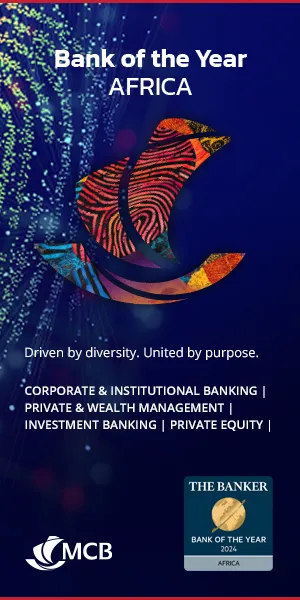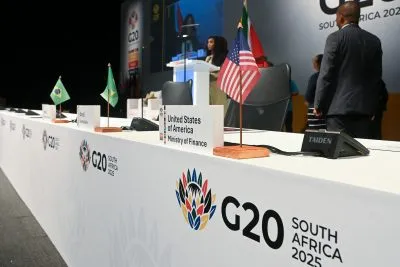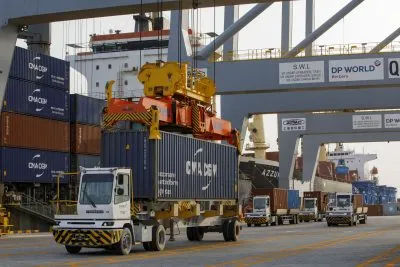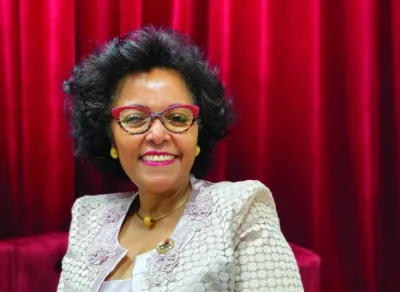In Africa, all manner of financial transactions can be made through the humble mobile phone – it allows Kenyans to run the whole gamut of activities ranging from the payment of share dividends and utility bills to the purchase of air tickets for global carriers Kenya Airways, British Airways and Virgin Atlantic. It even encompasses dowry payment.
From Nairobi and the continent’s innovation hub, Silicon Savanna, Wanjohi Kabukuru explains how this mobile revolution came about.
All the above functions are courtesy of M-Pesa (Swahili for ‘mobile money’), the innovative and award-winning Kenyan mobile-platform success story that has redefined business and taken mobile banking to dizzying heights. The brainchild of Safaricom, East Africa’s leading cellular phone operator, it has revolutionised commerce and eased trade by breaking the rigid rules of high finance and banking transactions.
When it was launched in 2007, the M-Pesa mobile money-transfer system was targeted at low-income people in rural areas who were not reached by major banks. This is no longer the case. Through m-banking, M-Pesa has opened up vast business opportunities.
Three years after launching M-Pesa, Safaricom took its innovation to a new level by teaming up with Africa’s leading micro-finance bank, Equity Bank, to launch the pioneering M-Kesho. Unlike the low-key launch of M-Pesa, M-Kesho was endorsed by President Mwai Kibaki at a high-profile function in May 2010.
M-Kesho (‘mobile tomorrow’ or ‘future’) is an M-Pesa Equity Bank affordable bank account, which can be started with a deposit of as little as $1.30. At their convenience, customers can deposit money into their bank account as well as withdraw money from the same account using M-Pesa. They can also request for mini statements and make balance enquiries.
The integration of banking and telecommunication sectors has helped to reach the unbanked, who can now have access to bank accounts through M-Pesa accounts. A person no longer needs to walk into a bank to be able to transact costly money transfers, open a bank account, weather long queues, and wait for hours or days for a single transfer to be effected. All they need is a mobile phone.
M-Pesa and its hybrid M-Kesho also offer a positive impact on emerging companies through the reduced costs of financial transactions. Mobile phone technology has already proved its numerous cost-effective benefits in delivering financial services and the improvement of access to financial services.
M-Kesho savings accounts attract benefits such as interest, micro-credit, micro-insurance, and deposit and withdrawal facilities. They also play an important role in enabling more Kenyans to access financial services and, by giving low-income groups easier entry into financial markets, encourage a saving culture and access to credit.
There is more to this new venture. Services that were hitherto alien to a majority of Kenyans, such as loans and insurance, have now been made possible through a simple text message.
M-Kesho genesis
Just how did M-Kesho come about? “This product had been in discussion for three years, to help people save, allow many unprivileged and unbanked to access banks’ facilities and even loans. Safaricom gave Kenya M-Pesa and they have gone further and become more innovative by using M-Pesa to pay dowries. This has not been done anywhere else in the world,” former Safaricom CEO Michael Joseph recalls.
“M-Pesa is now a world study model, a success story of its own kind. We made it happen right here to help ordinary Kenyans to better their lives. It is with this in mind that we decided to develop M-Pesa further and enable Kenyans to save for the future.”
Equity Bank’s CEO, Dr James Mwangi, expands on this. “My involvement in this product started in 2006 when I met Warren Buffett and Bill Gates at a global panel in Seattle.
“Gates looked me straight in the eye and asked ‘What is wrong with you bankers? IT started with mainframes and evolved to PCs. Banks have never changed. Why?’ I couldn’t answer his question and with shame I flew back to Nairobi and said ‘One day banking will be revolutionised to make access to finance for millions easier’,” a chastised Mwangi remembers.
“The then existing legal framework would not allow for creativity, yet farmers in the rural areas were yearning for a friendlier service which was accessible to them. Barriers of regulation had to be broken. A new framework of law to allow banks to dabble with technology had to be put in place. Today I am happy to be a part of the new movement that is the ‘Silicon Valley’ of financial innovation and we can start to export our innovation.”
According to Mwangi, a farmer in a remote village can access insurance premiums, trade in stocks, effect EFT (electronic funds transfer) and enjoy all the benefits of banking. “Everyone with an M-Pesa account automatically becomes an M-Kesho account holder. Kenyans today will enjoy equal allocation of resources which were only accessible to a few bank account holders,” Mwangi says.
Making major banks tremble
This innovation could not have come at a better time. According to the Kenya National Financial Access Survey 2010, 32% of Kenya’s bankable population are excluded from any formal or informal financial services and 27% access only informal financial services, while the formal banking sector serves 23% of the bankable population. This means that the majority of Kenyans are unable to access much-needed credit facilities.
“Today we are bridging the gap between the rich and the poor. The global visitors who come to study our business models might exceed those who go to the world-famous Maasai Mara. This is a revolution starting before our eyes,” notes Mwangi.
Today, the subscriber base of Safaricom’s M-Pesa account holders has the potential to make major banks tremble. Since independence, the combined number of bank account holders in Kenya has stood at 8.3m: M-Pesa account holders now number 14m after just three years.
Since its inception in 2007, M-Pesa has handled on average $350m per month and in Kenya alone, it has surpassed Western Union’s global transfers.
“M-Pesa now processes more transactions domestically within Kenya than Western Union does globally, and provides mobile banking facilities to more than 70% of the country’s adult population,” the International Monetary Fund noted in its October Regional Economic Outlook on the sub-Saharan African economy.
The mobile phone has become an EFT gadget, bank account and an ATM all rolled into one. It originated in Kenya, rolled out to the East Africa region and is now catching on all over the continent.
To celebrate Africa’s affinity with mobile banking, the Addis Ababa-based United Nations Economic Commission for Africa (UNECA), which has for the last 15 years been driving the continent to embrace ICT, commissioned a continent-wide study which culminated in the 130-page book M-Banking: An African Financial Revolution.
The first critical analysis of mobile banking to collect and study empirical data, it investigates m-banking, explores emerging e-commerce applications developed by non-financial companies and examines innovative solutions to assist poor people. It records the convergence between telecommunications, financial regimes, GSM networks and Internet Protocol. It explores, in addition to M-Pesa in Kenya, case studies of Sonatel multimedia in Senegal, a banking SMS alert, and Wizzit in South Africa, and numerous other examples of m-commerce activities within the three countries.
Co-editor Dr Sizo Mhlanga notes: “All studies indicated that we could use the mobile phones to realise lots of benefits. Mobile phones are an important ICT tool for development due to their ability to easily leapfrog the infrastructure barriers in remote Africa.”
Want to continue reading? Subscribe today.
You've read all your free articles for this month! Subscribe now to enjoy full access to our content.
Digital Monthly
£8.00 / month
Receive full unlimited access to our articles, opinions, podcasts and more.
Digital Yearly
£70.00 / year
Our best value offer - save £26 and gain access to all of our digital content for an entire year!

 Sign in with Google
Sign in with Google 





